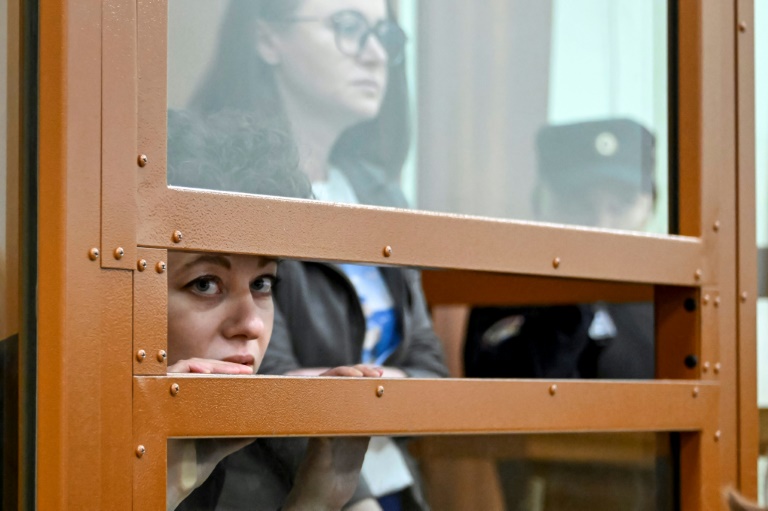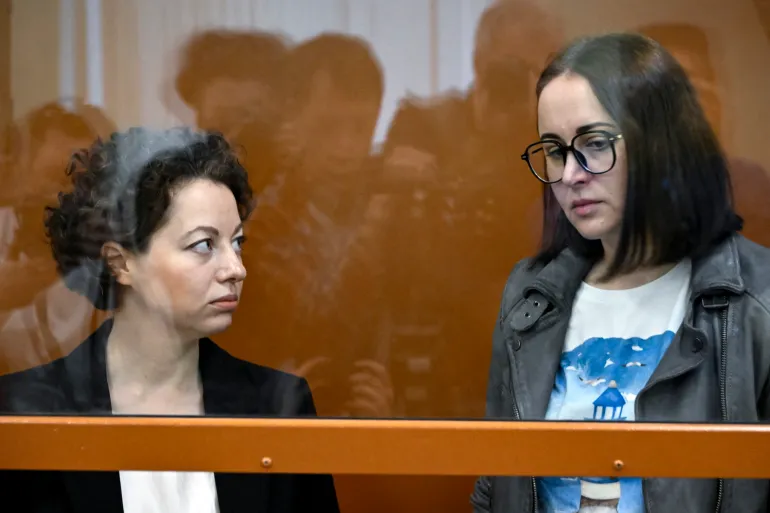A Trial that Grips a Nation
In Russia, a high-profile trial has captured national and international attention. A renowned Russian Playwright and director are facing charges of ‘justifying terrorism. A case that has sparked significant controversy and debate. The trial’s outcome could have far-reaching implications for artistic freedom and expression in Russia. As the proceedings unfold, the world watches closely. Concerned about the potential impact on the country’s cultural landscape and the broader issues of censorship and human rights.
The Charges: Allegations of Justifying Terrorism
Firstly, the charges against the playwright and director stem from their work, which authorities claim promotes or justifies terrorism. The specific piece in question is a play that depicts the life and motivations of a known terrorist figure. Prosecutors argue that the portrayal of this character in a sympathetic light constitutes a dangerous justification of terrorism. They contend that the play could incite violence and radicalization among its audience.
Moreover, the Russian government has stringent laws regarding the glorification of terrorism. These laws are part of broader anti-terrorism measures designed to combat extremism. However, critics argue that these laws are often used to suppress dissent and silence voices critical of the state. In this context, the trial of the playwright and director raises serious concerns about the misuse of anti-terrorism legislation to curb artistic freedom.
Additionally, the defense argues that the play is a work of fiction intended to provoke thought and discussion about complex social issues. They maintain that the play does not endorse terrorism but rather seeks to explore the psychological and sociopolitical factors that lead individuals to commit such acts. This artistic exploration, they argue, is essential for a healthy and vibrant cultural discourse.
Public and International Reactions on Russian Playwright: Divided Opinions
The trial has elicited a wide range of reactions both within Russia and internationally. Domestically, the case has polarized public opinion. Supporters of the playwright and director see the trial as an attack on creative freedom and a chilling example of state overreach. They argue that the arts should be a space for free expression and the exploration of difficult themes, without fear of persecution.
Furthermore, prominent cultural figures and human rights activists in Russia have spoken out against the trial. They have organized protests and issued statements calling for the charges to be dropped. These actions reflect broader concerns about the increasing restrictions on freedom of speech and the arts under the current Russian administration.
In contrast, some segments of the Russian public support the government’s stance. They believe that in the current global climate. Where terrorism remains a significant threat, it is essential to regulate content that could be interpreted as glorifying or justifying such acts. This perspective emphasizes national security and the prevention of radicalization over the freedom of artistic expression.
Internationally, the trial has drawn criticism from human rights organizations and foreign governments. Groups like Amnesty International and Human Rights Watch have condemned the charges as politically motivated and an infringement on free expression. Western governments have also expressed concern. Viewing the trial as part of a broader pattern of human rights abuses in Russia.
Implications for Artistic Freedom: A Precarious Future
The trial’s outcome could set a significant precedent for artistic freedom in Russia. If the playwright and director are convicted, it could signal a tightening of state control over cultural productions. This would likely lead to increased self-censorship among artists, who might fear persecution for tackling controversial subjects.
Moreover, a conviction could deter future artistic endeavors that seek to challenge societal norms or critique the government. The arts have historically been a platform for social and political commentary. And restricting this avenue could stifle important discussions and hinder cultural growth. The fear of reprisal could push artists to avoid any content that might be deemed politically sensitive. Leading to a less vibrant and diverse cultural landscape.
Additionally, the trial raises questions about the role of art in society. Art has the power to provoke, challenge, and inspire. It often addresses uncomfortable truths and sparks necessary debates. By targeting artists under anti-terrorism laws, the state risks undermining these vital functions of art. This approach not only impacts the cultural sector but also has broader implications for civil liberties and democratic values in Russia.

Looking Forward: Navigating a Complex Landscape on Russian Playwright
Looking ahead, the trial’s outcome will be closely watched by artists, human rights advocates, and the international community. Regardless of the verdict, the case has already highlighted the precarious state of artistic freedom in Russia. It underscores the need for a balance between national security and the protection of fundamental rights.
Furthermore, this trial could catalyze a broader movement advocating for artistic freedom and free expression in Russia. Cultural figures and activists might use this moment to push for legal reforms and greater protections for artists. The international community can also play a role by continuing to pressure the Russian government and offering support to those facing persecution.
Moreover, the trial serves as a reminder of the importance of solidarity among artists worldwide. By standing together and supporting each other’s right to free expression, artists can resist attempts to silence dissenting voices. This solidarity is crucial in maintaining a global cultural landscape where creativity and diversity can thrive.
A Crossroads for Art and Expression
In conclusion, the trial of the Russian playwright and director for ‘justifying terrorism’ is a critical moment for artistic freedom in Russia. The charges, reactions, and potential implications highlight the tensions between state control and creative expression. As the world watches, the outcome will likely influence the future of cultural production and the broader struggle for human rights in Russia. By advocating for free expression and supporting those who challenge oppressive regimes, we can help ensure that art remains a powerful force for social change and critical discourse.
Inspired by Al Jazeera News and read more articles here or read previous articles here.
